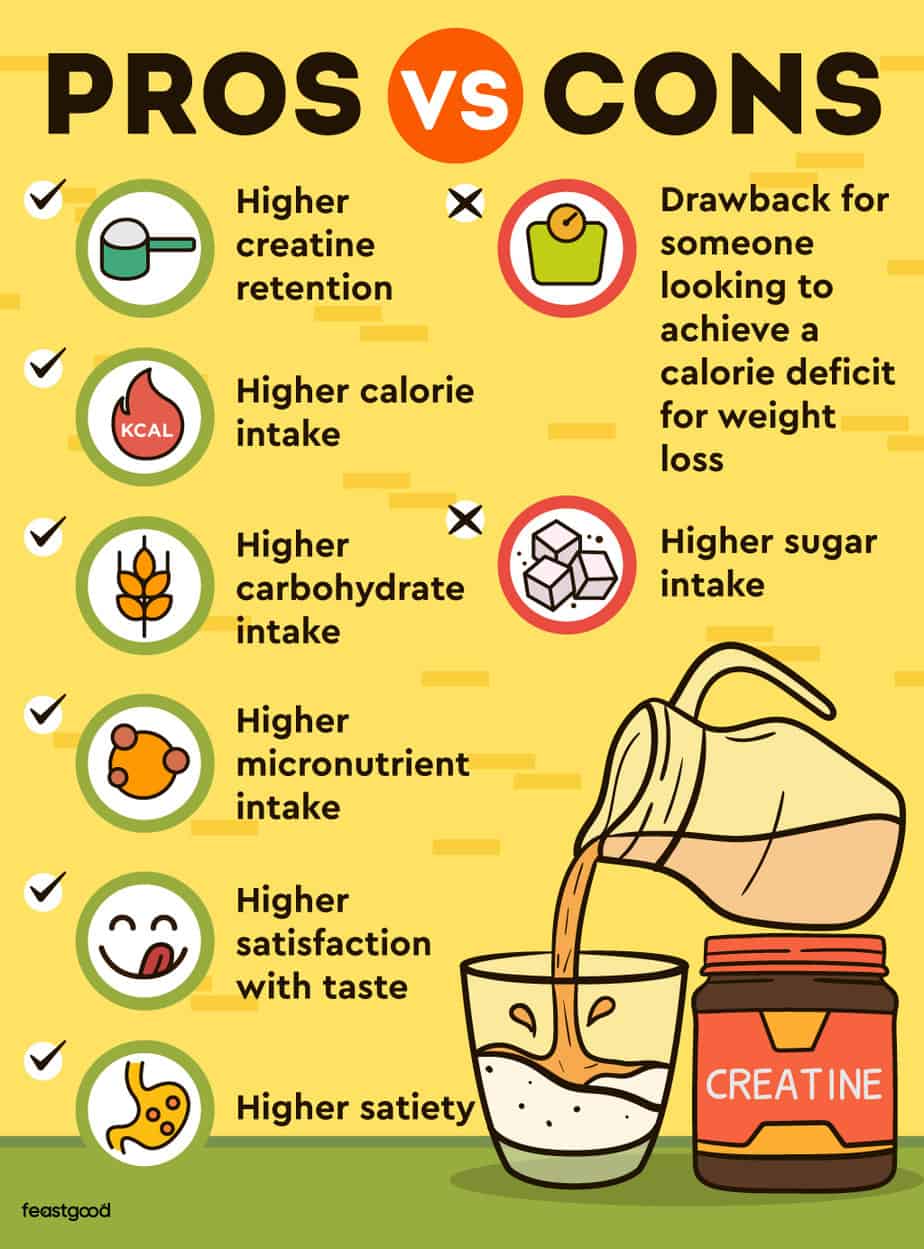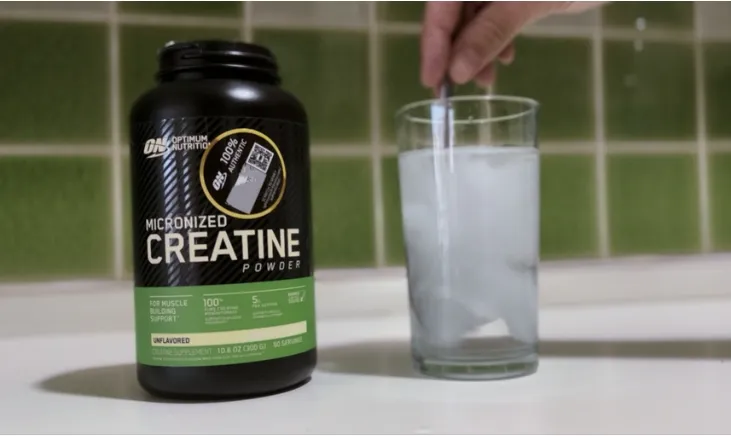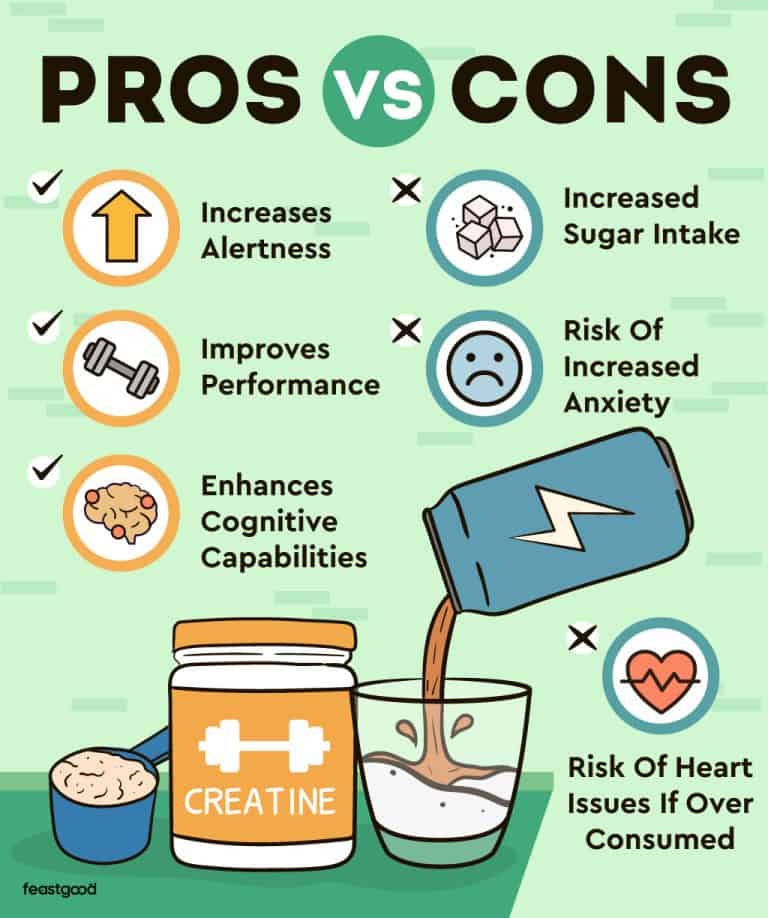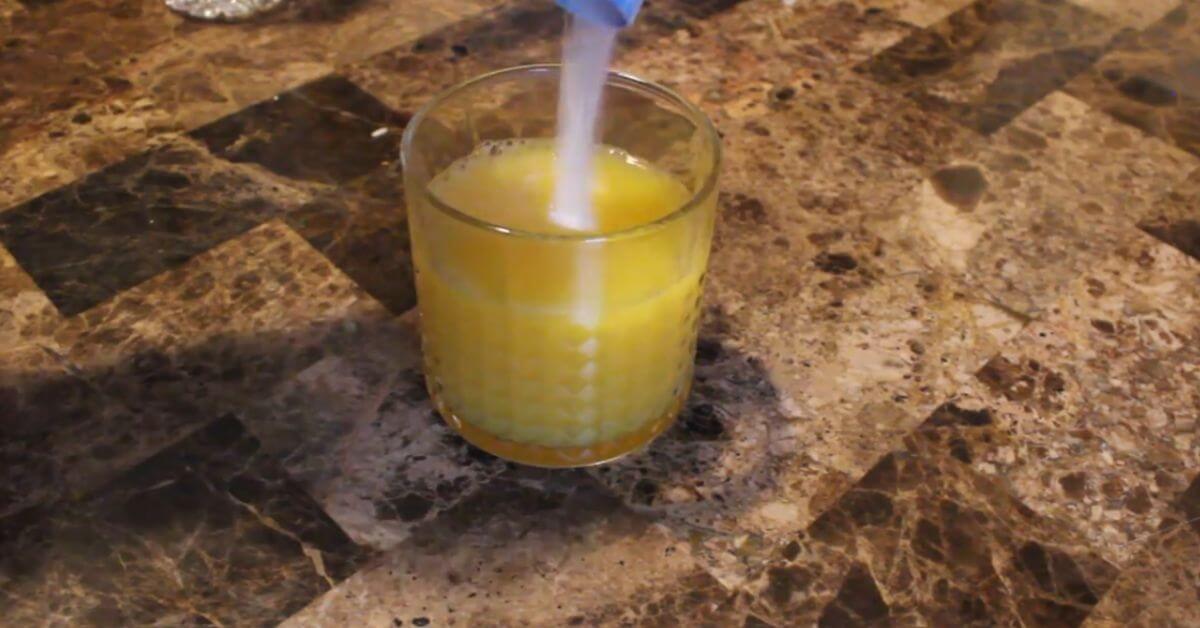Can You Mix Creatine With Juice

Imagine yourself standing in your kitchen, post-workout weariness clinging to you like a damp towel. The blender whirs, pulverizing a colorful concoction of fruits, promising a sweet surge of energy. You reach for your creatine, that trusty white powder that fuels your muscles, and a question pops into your head: Can I just toss this in with my juice?
The answer, thankfully, is generally yes. Mixing creatine with juice is a perfectly acceptable and often convenient way to consume this popular supplement. However, understanding the nuances – the "why" behind the "yes" – can optimize its effectiveness and ensure you're reaping the full benefits of your supplementation.
A Brief History of Creatine and its Rise to Fame
Creatine, a naturally occurring compound found primarily in muscle cells, plays a vital role in energy production during high-intensity activities. The story of creatine supplementation begins in the early 1990s when athletes started using it to enhance performance.
Before then, scientists had been studying it for decades, but its potential for athletic enhancement wasn't widely recognized. Soon enough, it became a staple in the regimens of bodybuilders, powerlifters, and athletes across a range of sports.
The Science Behind the Supplement
Creatine works by increasing the availability of adenosine triphosphate (ATP), the primary energy currency of cells. During short bursts of intense exercise, your body rapidly depletes ATP. Supplementing with creatine helps replenish ATP stores, allowing you to push harder and longer.
This translates to increased strength, power, and muscle mass over time. A common misconception is that creatine is a steroid, but this is far from the truth. It is a naturally occurring substance, and its use is considered safe and legal by most sporting organizations.
Why Juice Makes a Good Mixer
The reasoning behind combining creatine with juice is actually quite simple: absorption. Creatine is absorbed more effectively when taken with carbohydrates.
The insulin spike triggered by the sugars in juice helps shuttle creatine into your muscle cells. This increased absorption translates to better results from your supplementation. The type of juice doesn’t usually matter too much, but choices higher in simple sugars, like grape juice, are often touted for their potential to further enhance creatine uptake.
Practical Considerations: Dosage and Timing
The recommended dosage of creatine is typically 3-5 grams per day. This can be taken all at once or divided into smaller doses throughout the day.
Many people choose to take it post-workout along with their juice, as this is when their muscles are most receptive to nutrient uptake. Some individuals opt for a "loading phase" – taking a higher dose (around 20 grams per day) for the first week to saturate their muscles quickly – followed by a maintenance dose of 3-5 grams per day. However, research indicates that a loading phase isn't strictly necessary to achieve the desired effects.
Potential Drawbacks and How to Avoid Them
While generally safe, some individuals may experience mild side effects from creatine supplementation. These can include bloating, stomach cramps, or diarrhea.
These side effects are often temporary and can be minimized by staying well-hydrated and avoiding taking large doses at once. Some people find that creatine monohydrate, the most common form, can cause digestive discomfort. If this is the case, trying a micronized form of creatine may help, as it is more easily absorbed.
Choosing the Right Juice
While the specific type of juice isn't critically important, it's worth considering the overall health benefits. Opting for natural fruit juices with no added sugars is generally a better choice.
Be mindful of the sugar content, especially if you're managing your weight or blood sugar levels. Water remains the best hydrating agent, so don't abandon it for juice.
Debunking Common Myths
One persistent myth is that creatine causes kidney damage. This has been extensively studied, and research consistently shows that creatine is safe for individuals with healthy kidneys.
However, if you have pre-existing kidney problems, it's always best to consult with your doctor before taking any supplements. Another misconception is that creatine only benefits strength athletes. While it's certainly beneficial for those seeking to increase strength and power, it can also improve performance in endurance activities and even enhance cognitive function.
Creatine Beyond Athletic Performance
Emerging research suggests that creatine may have benefits beyond athletic performance. Studies have explored its potential role in managing neurodegenerative diseases, improving glucose metabolism, and even supporting cardiovascular health.
While more research is needed in these areas, the initial findings are promising. Creatine is even being investigated as a potential therapeutic agent for conditions like Parkinson's disease and Alzheimer's disease.
The Verdict: Juice and Creatine – A Winning Combination
In conclusion, mixing creatine with juice is a convenient and effective way to enhance its absorption and maximize its benefits. By understanding the science behind this combination and paying attention to potential side effects, you can safely and effectively incorporate creatine into your supplement regimen.
Remember, consistency is key. Whether you choose juice, water, or another beverage, taking your creatine regularly is essential for achieving optimal results.
So, the next time you reach for your creatine, feel confident in knowing that a simple glass of juice can be a powerful ally in your fitness journey. As you blend, consider that you are not just making a drink, but optimizing the potential of your own body and mind, all thanks to a well-researched and naturally occurring compound.

















